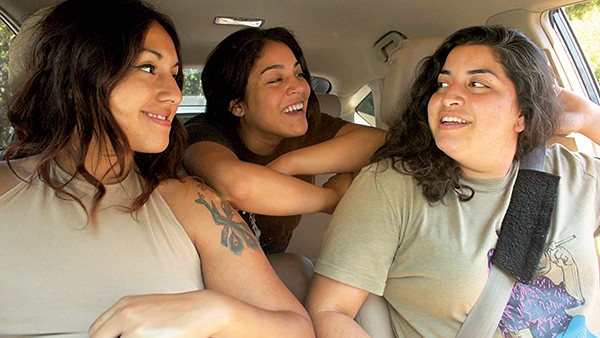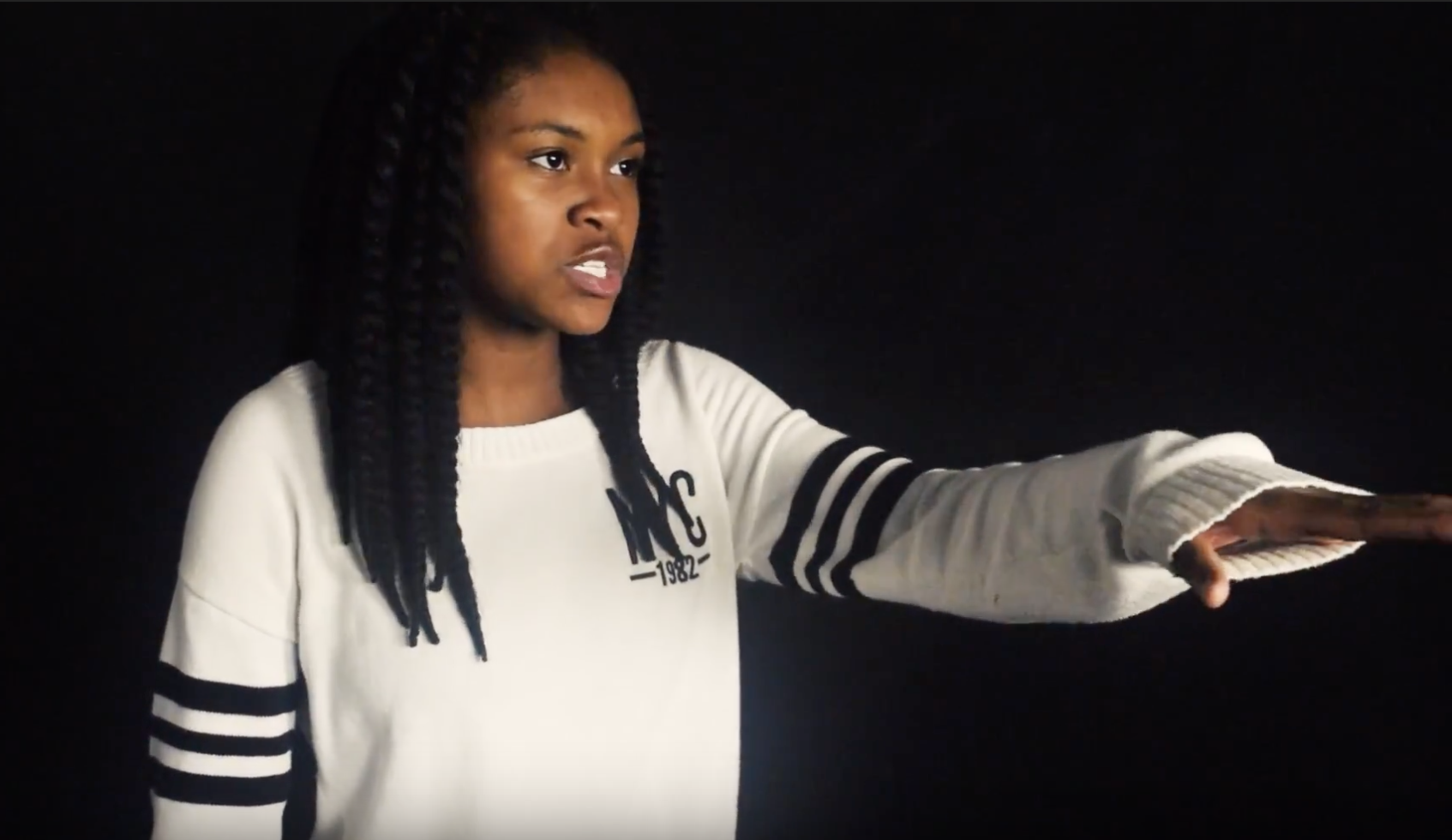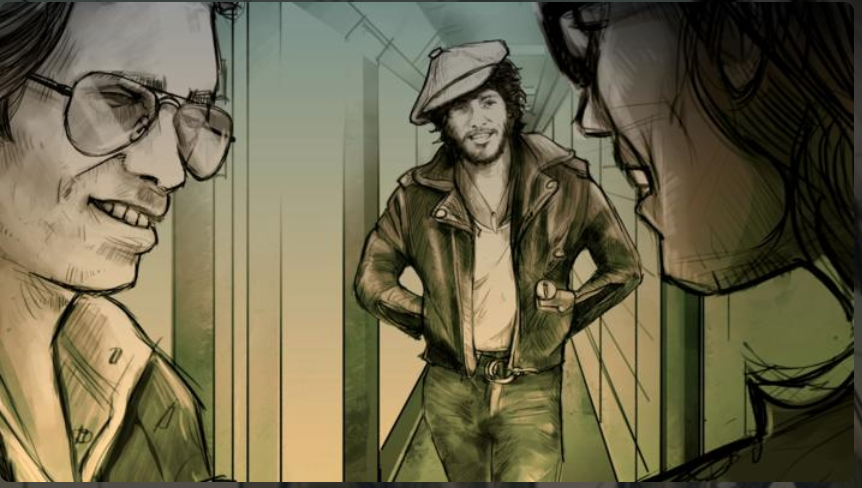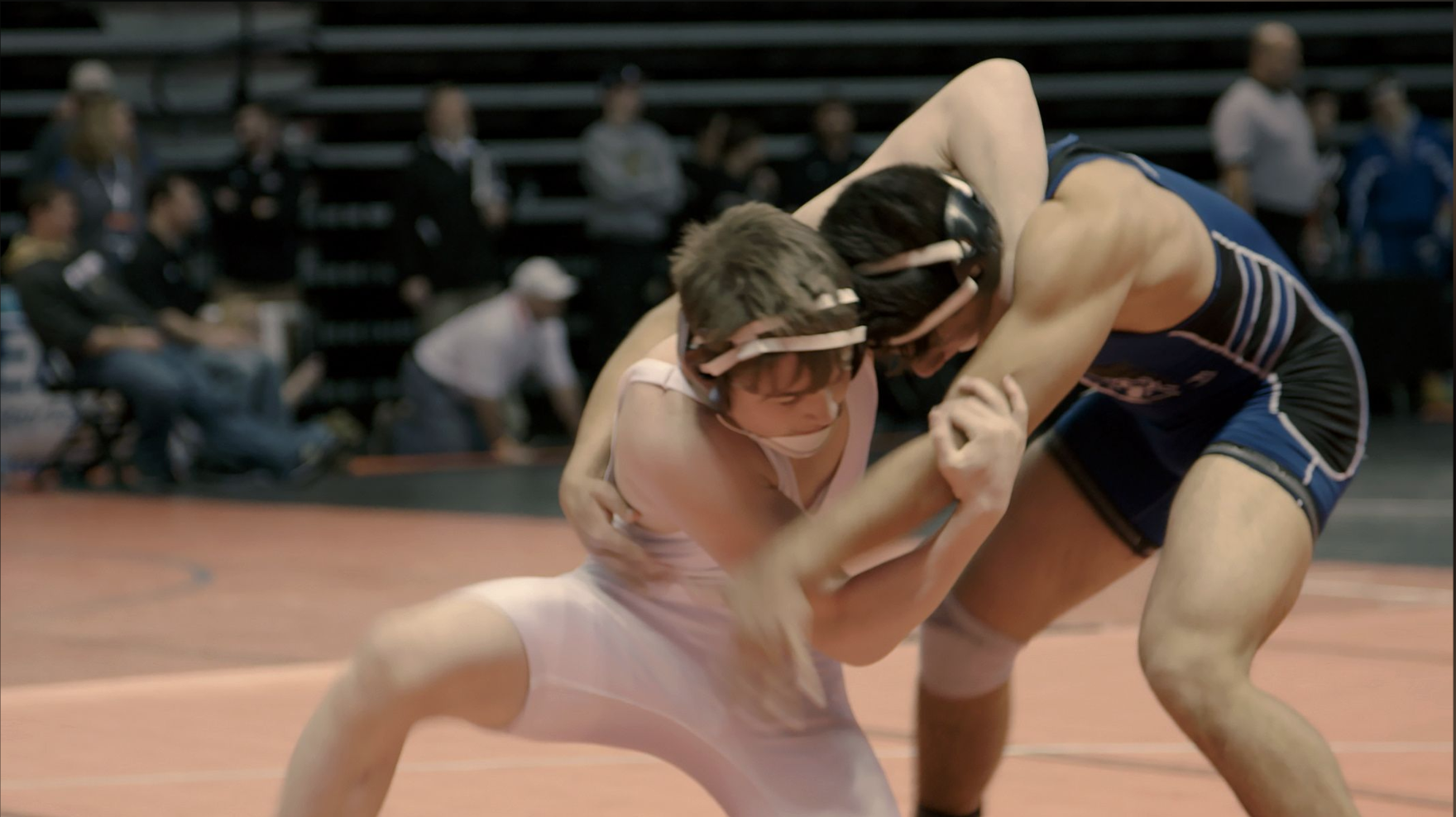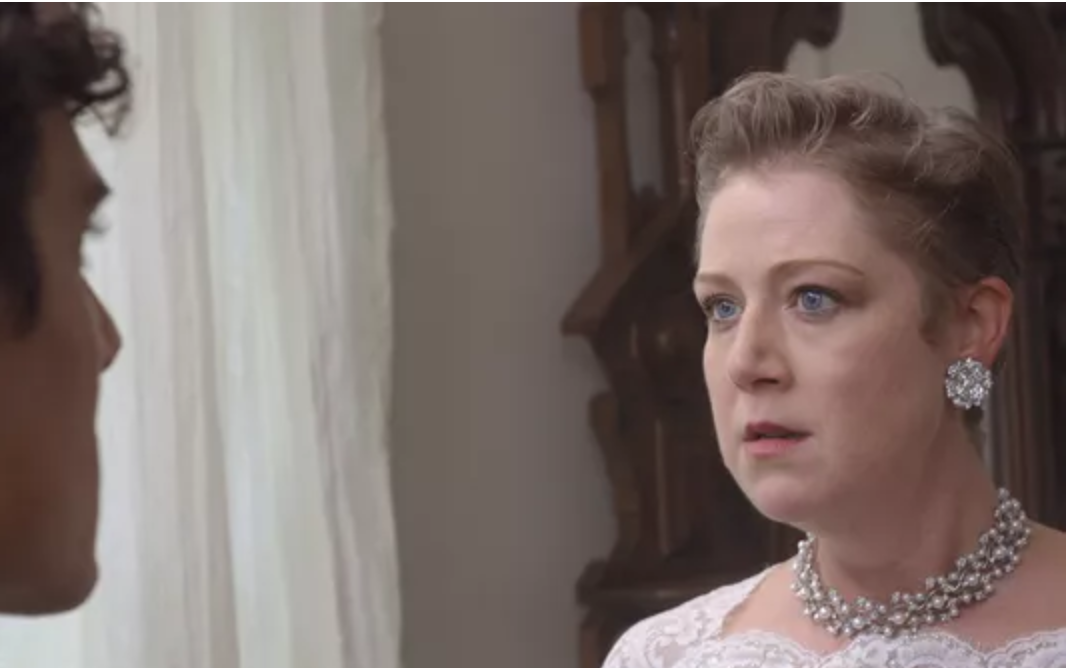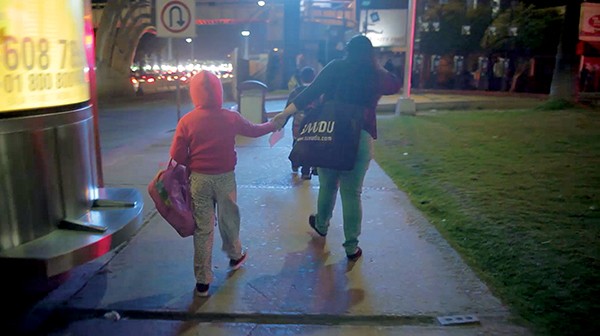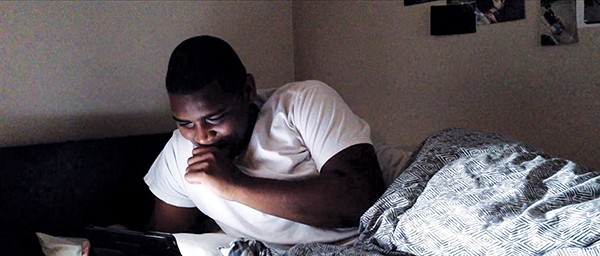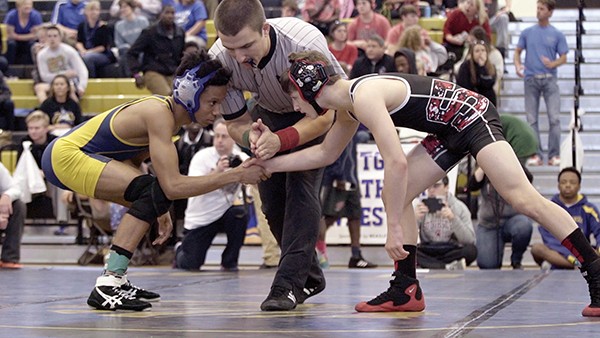
Jailen Young (left) faces off against an opponent in Wrestle.
Issues like racism, poverty, education, and drug abuse are often bandied about on television news programs. But when we make them “issues,” we reduce them to abstractions. It’s easier to talk about the difficulty of changing societal forces than it is to think about the individual, human costs.
The documentary Wrestle is, on its face, a film about an Alabama high school wrestling team trying to win the state championship. But director Suzannah Herbert says it’s about a lot more than that: “The film is very intimate, but it gives you a more empathetic view into problems our society faces — things that affect all of our lives, in big and small ways.”
Herbert is a native Memphian — a product of Snowden and Central High School — who, along with co-director Lauren Belfer, spent six months in Huntsville, Alabama, embedded with the J.O. Johnson High School wrestling team. “It was a failing school that Huntsville was shutting down,” Herbert says. “They were weary at first, because they didn’t want anything terrible coming out about their school system. But we were clear that we wanted to make it about the wrestling team, and show their lives on and off the mat. Eventually, we were able to gain access right before the season started. It was great, because we really wanted to capture this final season, and their journey to the Alabama state championships. As far as gaining trust from the wrestlers and their families, I think the fact that we decided to live in Alabama for six months and not just parachute in and out really was instrumental in building these relationships. It was clear that we were in it, and we became a part of the team, because we were at every practice, every tournament. I think that trust was built after a couple of weeks, because we were not in and out of their lives.”

Jamario Rowe is one of four high school wrestlers from Alabama who are the subject of director Suzannah Herbert’s documentary film.
Out of the hundreds of hours of footage they shot, Herbert and Belfer focused their story on four individual wrestlers and their young coach. The team’s unlikely run at the state championship comes against a background of grinding poverty, depression, and drugs. In one riveting scene, a minor brush with the law while on a trip to a meet turns tense very quickly. It’s hard not to wonder what would have happened to the kids had the cameras not been there. Since the audience has so much invested in the characters, the tightly edited sequences of the wrestlers in action are extra riveting, and the sport itself takes on added meaning. “It really is a beautiful metaphor, in terms of what they’re doing in their lives, and then they get out there on the mat all by themselves,” Herbert says. “It’s a very mental and visceral sport.”
Wrestle had its Memphis premiere during Indie Memphis 2018 at a packed screening at Playhouse on the Square. It went on to win the Ron Tibbett Excellence in Filmmaking Award and the Audience Award for Best Documentary. The film had an extremely successful festival run, garnering 11 awards all together. The film made year-end lists, and it was eventually picked up by Oscilloscope Labs, the New York-based distribution company founded by late Beastie Boys member Adam Yauch.
Herbert says meeting audiences at film festivals has “made it all worth it, in a way. People have very emphatically expressed just how much they care, how they have grown to love the four wrestlers. To do that in 96 minutes is really hard. It makes people hopefully discuss and think about the broader issues that they face. But there’s been an outpouring of empathy and love for the wrestlers that has been really gratifying and important. I hope that will translate to having a more empathetic view more broadly,” Herbert says. “These are just four teenagers. There are millions of kids with similar stories, and people who have families and mothers and kids who live right next to people who are viewing this doc. I hope people will take what they see in Wrestle, and maybe apply it in their own lives.”
Herbert will be in Memphis on Wednesday, April 3rd, when Indie Memphis will present Wrestle at Malco Ridgeway, as part of their regular weekly film series. Then, on Friday, the film will open at the Malco Cordova Cinema for a week’s run, with a Q & A with the director on Friday night moderated by filmmaker Laura Jean Hocking, and on Saturday night by Commercial Appeal film critic John Beifuss. “It’s pretty rare to have a small, independent film in Memphis theaters for a whole week, so I’m excited to get the film to audiences there, in my hometown,” says Herbert. “This film is very small in scope, but it has huge implications and big themes.”
 Joey Brent
Joey Brent 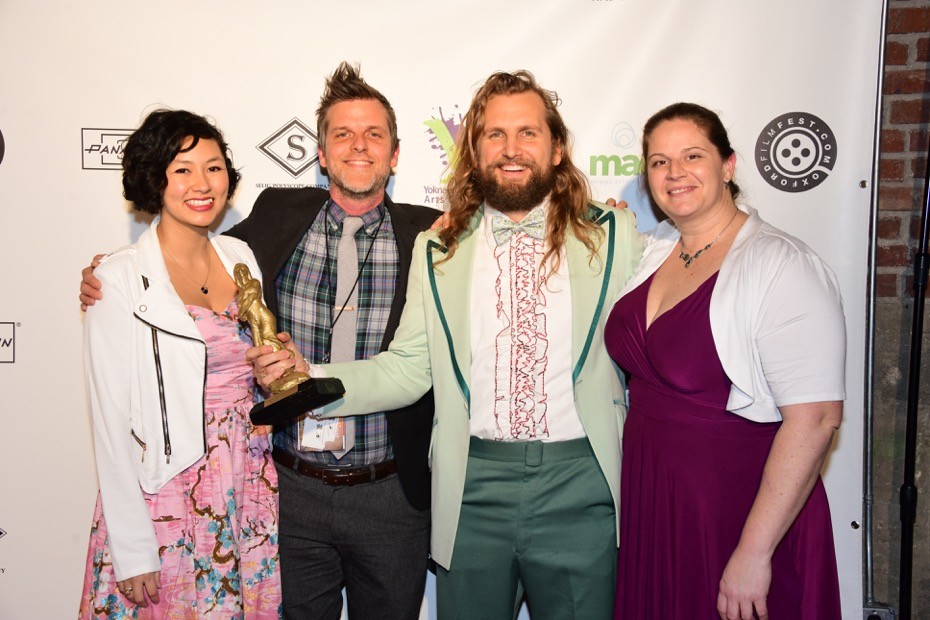 Joey Brent
Joey Brent 